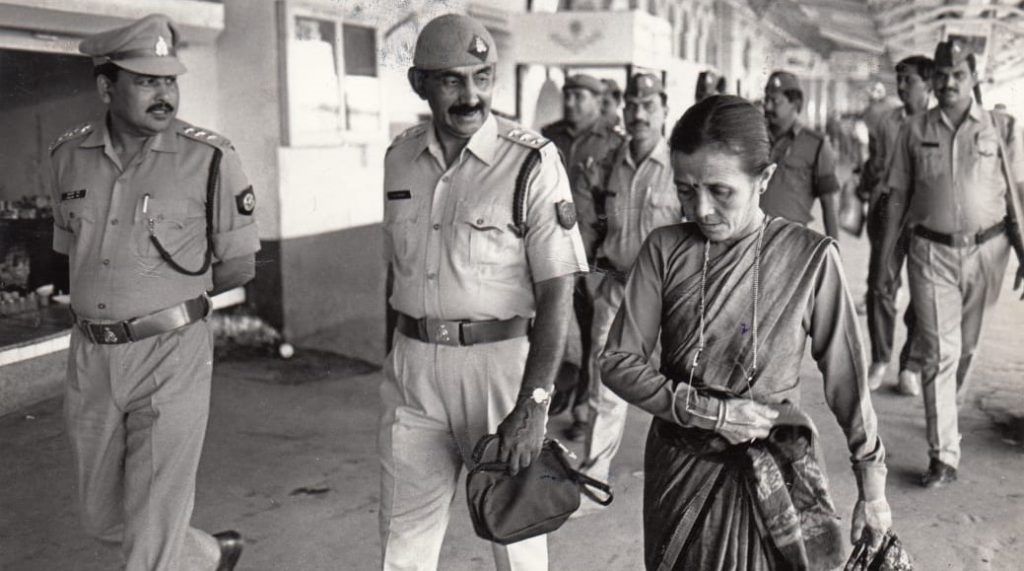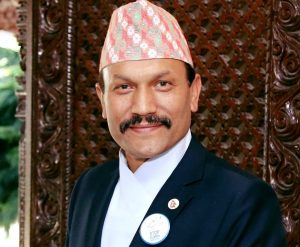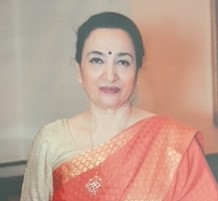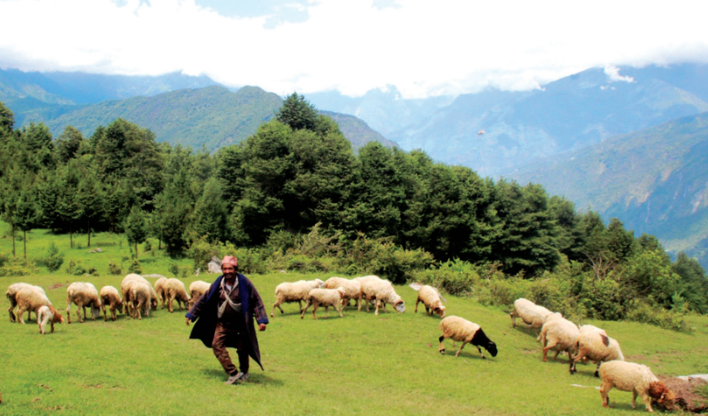Anuradha Koirala: One woman’s mission to free Nepal from human trafficking
Quick facts
Born on 14 April 1949 in Okhaldhunga
Went to St. Joseph Convent, Kalimpong, India
Graduated from St. Xavier’s College, Kolkata, India
Mother of Manish Koirala
Established Maiti Nepal in 1993
Won the title of ‘CNN Hero’ in 2010
 I spent most of my childhood in Kalimpong. After finishing high school, I went to Kolkata, where I got my bachelor's degree in history. Soon after graduation, I came to Nepal and started a teaching career.
I taught English for 25 years before I established Maiti Nepal. I founded the organization in 1993 because I wanted to do something about the problem of women and girls. There were a lot of people and organizations that talked about the problem, but very few were actually willing to help the victims of trafficking.
I was 43-year-old and I didn’t have a lot of money. All I had was Rs 30,000. It was all of my savings and the money I got after selling my jewelry.
Maiti Nepal started from a flat with three rooms and a kitchen. I took in trafficking survivors as well as those in need of rescue. The number of survivors kept on increasing as days went by. I had to dedicate my whole time looking after them, so I didn’t have any time to work outside and make money. Funding and donations came much later.
I used to take loans from people I knew to feed sheltered women and children. I don’t even know how I managed to do all that. I did all the work, from cooking to cleaning to washing clothes and dishes. Besides, I also had a son to look after.
We all lived under the same roof. Whatever the challenges, we faced them together. Maiti Nepal continued this way for nearly five years. There was no funding or partner organizations. I was running the organization by myself, until one day an individual from UNICEF told me that they were willing to fund Maiti Nepal. For this, I had to write a proposal. I didn’t know the first thing about writing a proposal. I hadn’t even registered the organization to begin with. It was all so new to me. Thankfully, I knew some people who could help me.
I spent most of my childhood in Kalimpong. After finishing high school, I went to Kolkata, where I got my bachelor's degree in history. Soon after graduation, I came to Nepal and started a teaching career.
I taught English for 25 years before I established Maiti Nepal. I founded the organization in 1993 because I wanted to do something about the problem of women and girls. There were a lot of people and organizations that talked about the problem, but very few were actually willing to help the victims of trafficking.
I was 43-year-old and I didn’t have a lot of money. All I had was Rs 30,000. It was all of my savings and the money I got after selling my jewelry.
Maiti Nepal started from a flat with three rooms and a kitchen. I took in trafficking survivors as well as those in need of rescue. The number of survivors kept on increasing as days went by. I had to dedicate my whole time looking after them, so I didn’t have any time to work outside and make money. Funding and donations came much later.
I used to take loans from people I knew to feed sheltered women and children. I don’t even know how I managed to do all that. I did all the work, from cooking to cleaning to washing clothes and dishes. Besides, I also had a son to look after.
We all lived under the same roof. Whatever the challenges, we faced them together. Maiti Nepal continued this way for nearly five years. There was no funding or partner organizations. I was running the organization by myself, until one day an individual from UNICEF told me that they were willing to fund Maiti Nepal. For this, I had to write a proposal. I didn’t know the first thing about writing a proposal. I hadn’t even registered the organization to begin with. It was all so new to me. Thankfully, I knew some people who could help me.
 After we started getting donations and funding from outside, I was able to hire some people to help me with the work. I still look over everything that goes on in Maiti Nepal, except accounts and finances.
Once the funds started flowing, we were also able to add another shelter. Meanwhile, the number of survivors also increased massively, particularly after the Mumbai rescue in 1996. While the rescued survivors were sent to other organizations too, it was Maiti Nepal that took in the largest number of them.
Running a shelter doesn’t just mean providing food and a place to stay to the survivors. It also means creating an environment where the rescued individuals could feel welcome and safe. Many trafficking survivors go through unimaginable pain and trauma, and as a result, some of them pick up bad habits like smoking and drinking.
I was a teacher for 25 years and if you ask any student of mine, they will tell you how strict I was. I was the same with trafficking survivors when it came to making them quit their bad habits. Although I treated them with love and respect, I didn’t tolerate their bad habits. It took a lot of patience, but they did quit eventually.
I have always wanted to work for women and children, so I feel extremely lucky that I was able to live my dream. When I got nominated for the CNN Hero award for my work through Maiti Nepal, I didn’t even know that I was on the list of nominees. Winning the award was both a joyful and humbling occasion for me. On one hand, Maiti Nepal was getting global recognition, and on the other, I felt the burden of responsibility on my shoulder had been increased. I feel the same sense of added responsibility with every award and recognition. They add the pressure of doing more and doing better everyday. Maybe it’s a good thing? I don’t know.
All I can say is, from the moment I established Maiti Nepal 30 years ago, I have worked with a singular goal of making Nepal free from women and girl trafficking. I am 73 now and I am still striving towards that goal. The fight is not over when it comes to women’s rights. It is a shame that we still haven’t been able to protect our women and children. So I have to keep on fighting.
About her
Bishwo Ram Khadka (Colleague)
After we started getting donations and funding from outside, I was able to hire some people to help me with the work. I still look over everything that goes on in Maiti Nepal, except accounts and finances.
Once the funds started flowing, we were also able to add another shelter. Meanwhile, the number of survivors also increased massively, particularly after the Mumbai rescue in 1996. While the rescued survivors were sent to other organizations too, it was Maiti Nepal that took in the largest number of them.
Running a shelter doesn’t just mean providing food and a place to stay to the survivors. It also means creating an environment where the rescued individuals could feel welcome and safe. Many trafficking survivors go through unimaginable pain and trauma, and as a result, some of them pick up bad habits like smoking and drinking.
I was a teacher for 25 years and if you ask any student of mine, they will tell you how strict I was. I was the same with trafficking survivors when it came to making them quit their bad habits. Although I treated them with love and respect, I didn’t tolerate their bad habits. It took a lot of patience, but they did quit eventually.
I have always wanted to work for women and children, so I feel extremely lucky that I was able to live my dream. When I got nominated for the CNN Hero award for my work through Maiti Nepal, I didn’t even know that I was on the list of nominees. Winning the award was both a joyful and humbling occasion for me. On one hand, Maiti Nepal was getting global recognition, and on the other, I felt the burden of responsibility on my shoulder had been increased. I feel the same sense of added responsibility with every award and recognition. They add the pressure of doing more and doing better everyday. Maybe it’s a good thing? I don’t know.
All I can say is, from the moment I established Maiti Nepal 30 years ago, I have worked with a singular goal of making Nepal free from women and girl trafficking. I am 73 now and I am still striving towards that goal. The fight is not over when it comes to women’s rights. It is a shame that we still haven’t been able to protect our women and children. So I have to keep on fighting.
About her
Bishwo Ram Khadka (Colleague)
 I have worked with her for a long time now, and I have never seen anyone as disciplined and sincere as her. She is a rare individual. Her goal has always been to free Nepal from human trafficking and she has never stopped working on it. Her work is truly remarkable.
Meera Ratna (Friend)
I have worked with her for a long time now, and I have never seen anyone as disciplined and sincere as her. She is a rare individual. Her goal has always been to free Nepal from human trafficking and she has never stopped working on it. Her work is truly remarkable.
Meera Ratna (Friend)
 I have known Anu since our school days. She always had a keen interest in social work and I have seen her be a part of many social works. She was always looking to help people. I am proud of work and everything she has achieved.
Dr Samjhana Pokhrel (Student)
I have known Anu since our school days. She always had a keen interest in social work and I have seen her be a part of many social works. She was always looking to help people. I am proud of work and everything she has achieved.
Dr Samjhana Pokhrel (Student)
 I was a child when I first met Dijju in 2002. One thing I really love about her is that she has always been supportive of what I wanted to study. Not just me but all the other children in Maiti Nepal. Even when there are so many children, she managed to remember all of our interests. I don’t know how she did it, but I am grateful for everything she has done for us.
I was a child when I first met Dijju in 2002. One thing I really love about her is that she has always been supportive of what I wanted to study. Not just me but all the other children in Maiti Nepal. Even when there are so many children, she managed to remember all of our interests. I don’t know how she did it, but I am grateful for everything she has done for us.
Who should be our prime minister?
Regardless of his performance as prime minister during his decades-long political career, a small constituency in Dadeldhura district in the Far-Western Region may continue to elect Sher Bahadur Deuba as their representative till eternity. Another small constituency in Jhapa district in the Eastern Region may continue to elect KP Sharma Oli as their true representative, without bothering to assess his performance as prime minister during his long political career. Yet another constituency in Rautahat or Kathmandu in the Central Region may stick to another former prime minister Madhav Kumar Nepal as their representative for reasons best known to them. Another constituency in Gorkha may choose to have Pushpa Kamal Dahal alias Prachanda as their lifelong representative, regardless of his not-so-smashing performance as prime minister. Various factors may be at play behind these constituencies’ possible selection of their representatives. Money and muscle matter. Clan allegiance matters. Party loyalty matters. The surety that their candidate will become prime minister of the country, come hell or high water, may have driven—and continue to drive—a constituency to opt for the same candidate over and over again. Which constituency knows this better than the constituency in Dadeldhura, which has elected Sher Bahadur Deuba not once, twice but seven times? Every constituency, of course, has every right to choose their favorite candidate as their representative. But here we are talking about the head of the government, not a representative of a constituency. Once elected to the parliament, powerful candidates can easily bend the rules to quench their thirst for state powers. They can make their respective parties toe their lines and buy support through the lure of the lucre. They can resort to all sorts of means to manufacture a majority in the Parliament in their favor. Our parliamentary history is full of incidents of horse-trading, intimidation of lawmakers, floor-crossing and use of several other unparliamentary measures that have harmed this country big time while serving the interest of influential prime ministers and, in turn, deep-entrenched foreign interests. In such cases, the parliament has become a mere stable full of beasts of burden that do the bidding of a whip-cracking executive. The whole nation saw this during the endorsement of the much controversial Mahakali Treaty, during the passage of the Millennium Challenge Corporation Compact and the controversial Citizenship Amendment Bill. Who among the lawmakers bothered to air their voice of conscience during those events? These days, the so-called sovereign Parliament acts as a mute spectator even when the executive chooses to sell the country down the river by giving her lifelines away, much to the detriment of the country and her people. We saw it during the gifting of the Upper Karnali Project, Arun III, Arun IV, Lower Arun, West Seti and Seti VI projects. Decades before, the country saw the same spectacle during the sellout of the Koshi, Gandaki and Mahakali rivers. Many times since the 1950’s, most of us have looked into the menu for hours on end and decided not to give new taste and flavor a try. We have wasted the time of the poor waiter and the restaurant (Do we value our own time as well? I seriously doubt it). We have decided to vote for our ancestors’ parties time and time again despite their miserable performance. Yet we expect the tried, tested and corrupt-to-the core parties and their leaders to do magic and transform the country. All this takes us to some important questions. Isn’t it time for a thorough cleansing of this system? Should we again vote for the parties and the leaders that have failed us repeatedly? Look how these leaders have picked up their PR candidates, straight from their pockets. Doesn’t this selection make a mockery of representative democracy? Doesn’t it make a mockery of inclusiveness? Should not a prime minister of 30m people, representing seven provinces, different ethnicities, faith and age groups have a national appeal? Should the candidate for the top job be an all-time favorite rep of a particular constituency and nothing more? Should the maker of our destiny necessarily be a darling of those handpicked birth chart readers and stargazers? Should we vote accordingly when some dubious ‘reader of the future’ says that candidate X will be the prime minister for the nth time? Should our prime minister not have a long-term vision for the country? Should the candidate not be an expert of repute in some important walks of national life, like national defense and security, geopolitics and geo-strategy, economics, water resources, artificial intelligence, the internet of things, et al? Should he not have a proven track record? Not in institutionalizing malgovernance, corruption, political instability, anarchy, of course. Should the candidate be physically, medically and spiritually fit enough to govern? Above all, should not the whole electorate elect a prime minister with a majority? Should this task fall on the frail shoulders of constituencies that cannot rise above their our-own-candidate-for-PM and blood-is-thicker-than-water mentality? The Nepali electorate should ask these questions repeatedly before the elections slated for November 20, 2022. Let your conscience guide you through and give this country a truly deserving prime minister, this time around.
Nepal’s election culture and its ills
Elections are the backbone of democracy. Local elections are essential for the grassroots democracy for electing people's representatives to govern local governments. After the promulgation of a new constitution in 2015, Nepal has held two local elections. These periodic polls were the hallmark of democracy of the young federal republic. Timely elections are the lifeline of democracy. The Election Commission (EC) has not been arranging after polls monitoring of the elections for a long time. It is a matter of great concern that some candidates do not maintain code of conduct during and after elections. Most of the candidates do not care for it because it is ritualistic and less realistic. The EC only urges the candidates and parties to abide by the code of conduct. It also imposes expenditure limits on candidates, asks for election expense details in a standard accounting format, and asks the candidates to limit the amount a party or candidate can spend for election purposes according to the provision of article 24 of the Election Commission Act. But most candidates cross the limit of expenditure during the election set by the commission. It is no secret that contractors, smugglers and black marketeers fund election campaigns in Nepal, but the election body has been rendered toothless by the political parties to take any action. Elections in Nepal are won by manipulation, muscle and money. It is true that some democracies of Asia are dying at the hands of the elected elites. They want to be dictators after winning the elections. In the words of eminent economist Amartya Sen, “Balloting alone can be thoroughly inadequate on its own, as is abundantly illustrated by the outstanding electoral victories of ruling tyrannies in authoritarian regimes in the past as well as now in the present.” Expression of public views are thwarted by censorship, informational exclusion and climate of fear, along with the suppression of political opposition and the independence of the media, and the absence of basic civil rights and political liberties. The constitution of Nepal, which came into effect on 20 Sept 2015, replaced the Interim Constitution of 2007. With the endorsement of the charter, the country saw a new political era. It formally demolished the centralized and unitary system of governance, and established a people-oriented federal democratic. The people of Nepal have become the ultimate sovereign power of the nation. The constitution has provided a competitive multiparty democratic system, civic freedom, fundamental rights, human rights, periodic elections, voting rights without the right of rejection, full freedom of the media and independent judiciary. It is founded on principles of socialism, the rule of law, democratic values, durable peace, good governance and sustainable development. Founded on the provisions of the constitution, three-tier general elections were held between May and December of 2017 elected about 35,000 local level representatives, including mayors, deputy mayors, ward chiefs and they get salary including all allowances. Article 225 of the constitutions has mentioned that the term of local level-elected representatives shall be of five years. According to this, the government has constitutionally held the local elections this year as suggested by the Election Commission. But the tragedy is that in Nepal the date of elections is decided by the government and not by its election governing body. The popular saying that power corrupts is nowhere more apparent than in Nepal. There is rampant corruption in this country from local levels to high levels. Elected representatives and government officials have looted the state coffers to a great extent. They spend less time understanding the plight and problems of the general masses. I completed the tour of Dhanusha, Siraha and Sarlahi districts before local elections held on May 13. There, I met many intellectuals, civil society members and eminent persons to discuss election code of conduct and rule of law, among other issues. Their concerns ranged from elected representatives and politicians blatantly ignoring the rule of law to engaging in corruption to misappropriating state funds to win elections. To conduct a fair election, Nepal needs an empowered poll governing body, one that is allowed to implement the code of conduct and regulations without any political hindrance. But a powerful EC alone will not do, it is also incumbent upon political parties and their leaders to respect the rule of law and be transparent when it comes to election funding. Elections are becoming an increasingly expensive affair in Nepal. As a result, suitable and qualified candidates are unable to run an effective campaign. Honest candidates cannot win elections only because they cannot spend money. Expensive elections have become a bane to Nepal’s democracy. Rather than competent and visionary candidates, businessmen and contractors are entering elections to further their vested interests. They can buy the votes because they have sufficient money. Big businesses, NGOs and INGOs also fund political campaigns in Nepal to push their own interests. Parties and their candidates never declare the source of their campaign funding despite repeated urges by the EC. They do so because they do not care for the rule of law and impartial elections. Therefore, a one-sided effort from the election body to ensure free and fair vote and implement the election code will never work. The author is a former joint secretary of Election Commission
Muktinath Bikas Bank: We have always strived to be different
About Muktinath Bikas Bank Muktinath Bikas Bank Limited was established in 2007 and has a ‘B’ class national-level financial institution license. The bank envisions being a robust financial institution while uplifting the socio-economic status of Nepalis. ApEx interview with Pradyuman Pokharel, CEO What is the roadmap behind the success of Muktinath Bikas Bank? It is because our bank has not forgotten the place where we belong. Our bank was established out of need, not with desire. This is one of the major differences between us and other banks. Though it was a development bank, we took a different path by helping eradicate poverty in rural parts of Syangja, the place from where we started our operation. Initially, we were licensed to operate in three districts as a development bank. We eventually became a national-level development bank. In 2016, we came to Kathmandu to operate the head office from here. But throughout all these upgrades, we didn’t lose our initial vision. The underlying policies that support our vision were planned with appropriate strategies. We believe there are two ways to be the best bank: either you should be the biggest bank or you should be different. We are not the biggest among the banks but we have always strived to be different. How often does your bank launch new products? We always try to keep ourselves updated in the best practice, so we periodically launch our products by understanding the needs of our customers. Recently we launched a deposit product called ‘Ashirwad Bachat’ and I am very proud to say that it has the highest insurance coverage of over Rs 10m. Many commercial banks are going for a merger. Does this hamper development banks? In the last fiscal year, the average return on equity of commercial banks was about 13.97 percent. But of the national level development banks, it was 14.16 percent. So, it is a fact that development banks are more profitable than commercial ones. If commercial banks merge, it becomes bigger and, in the process, the small customers are left behind. To pick them up, the development banks are always there. So, the merger is good for us. What is the situation of our national economy? Our total foreign trade in a year is about Rs 2.12trn. Out of this, 91 percent is for import and only nine percent for export. We are having a big issue of import dependency. In mid-July 2022, the balance of payment stood at an all-time high of about Rs 255bn but our foreign exchange reserve stands at $9.42bn. This is an external side of the economy that relates to the international scenario. Talking about the internal side, our inflation rate is 8.26 percent, which is very high. To cut this, the Nepal Rastra Bank raised its bank rate from 5 percent to 8.5 percent and its Cash Reserve Ratio (CRR) from 3 percent to 4 percent. So, the interest rate of commercial banks increased to 9.72 percent from 8.42 percent. With all these numbers, we can assume that we are not in good condition and the World Bank reports also say that the coming year will be much harder economically—especially for import-based countries like us. What is your opinion on the central bank hiking the interest rate? The World Bank has recently come up with a study that says the interest rate has not risen in Nepal only but the whole of South Asia. In Pakistan, the policy rate is above 15 percent, it is 14 percent in Sri Lanka. But in our case, it is only 8.5 percent. We are not in that much of a miserable state compared to others. The interest rate has been hiked all over the world and Nepal is no exception. CEO’s profile Pradyuman Pokharel has banking experience of over three decades. At present, he is also the president of Development Bankers Association Nepal and Executive Member of Management Association of Nepal. Before joining Muktinath Bikas Bank in 2016, he was associated with Mega Bank and Nabil Bank in leadership roles. Under his leadership, Muktinath Bikas Bank became the recipient of various international and national awards including European Microfinance Award 2020. MNBBL at a glance Balance Sheet Size: Rs 121.502bn Deposits: Rs 105.567bn Total loans and advances: Rs 91.412bn Clients: 1,330,655+ Branch: 178 Staff: 1,549



















